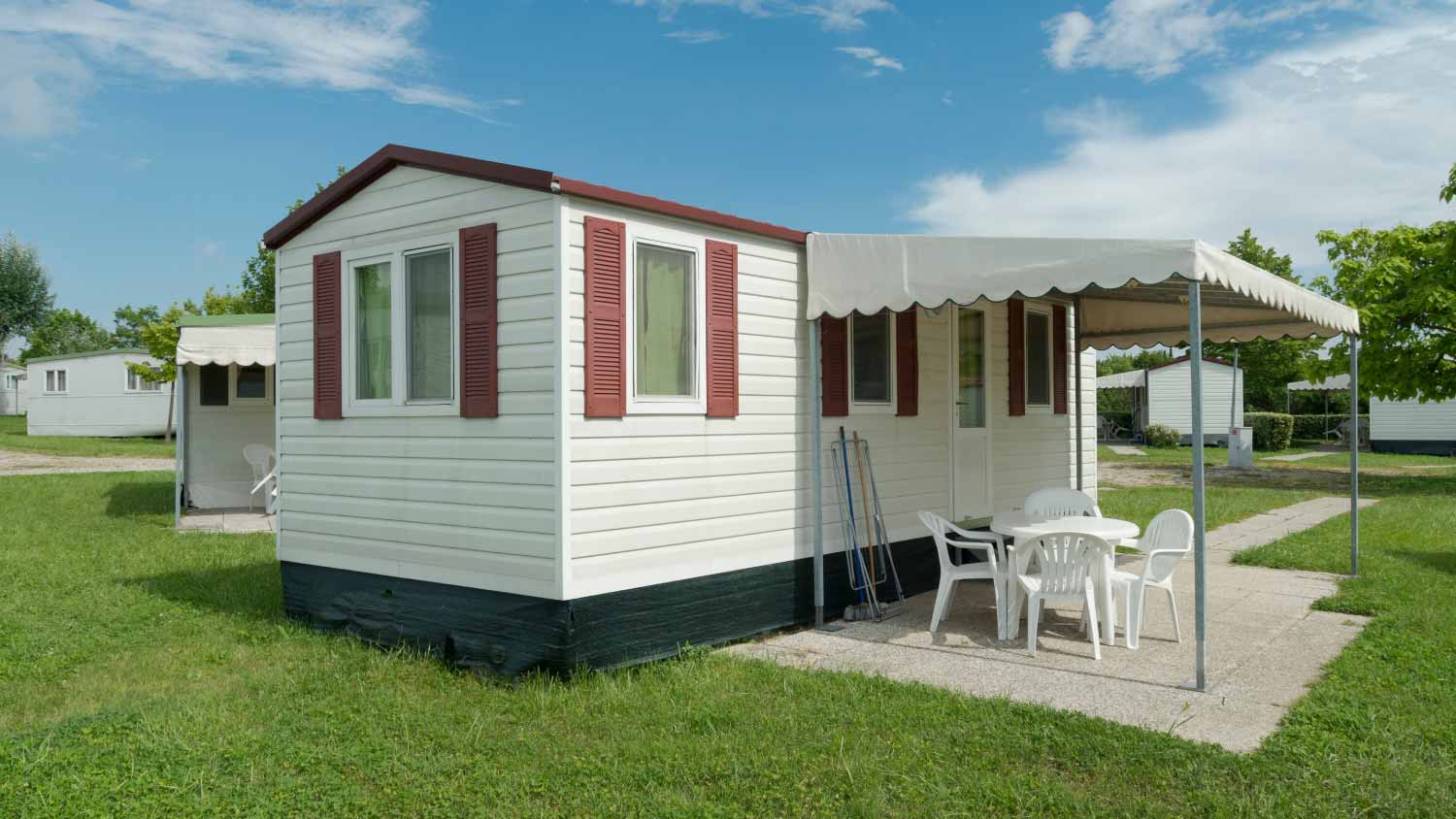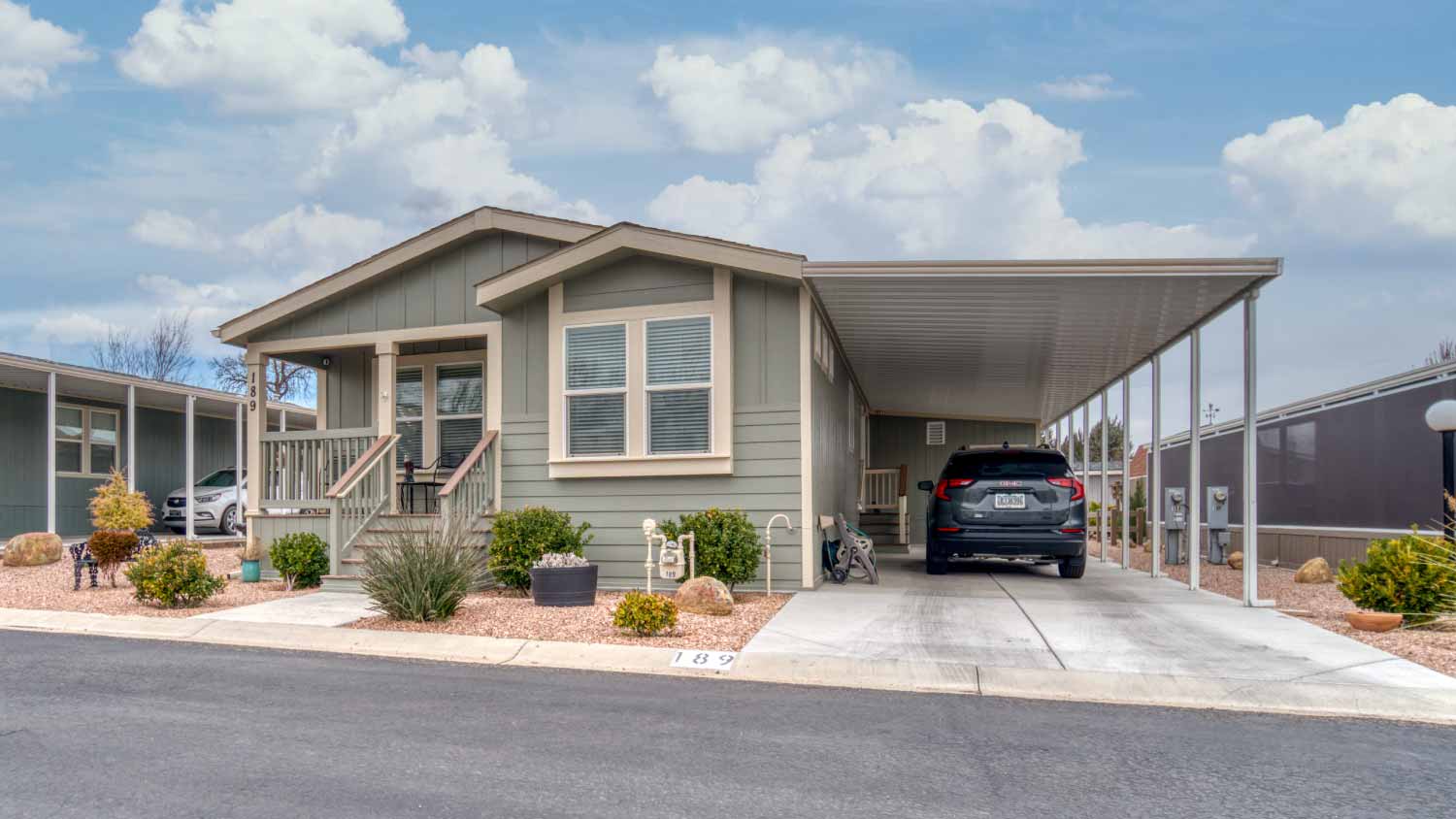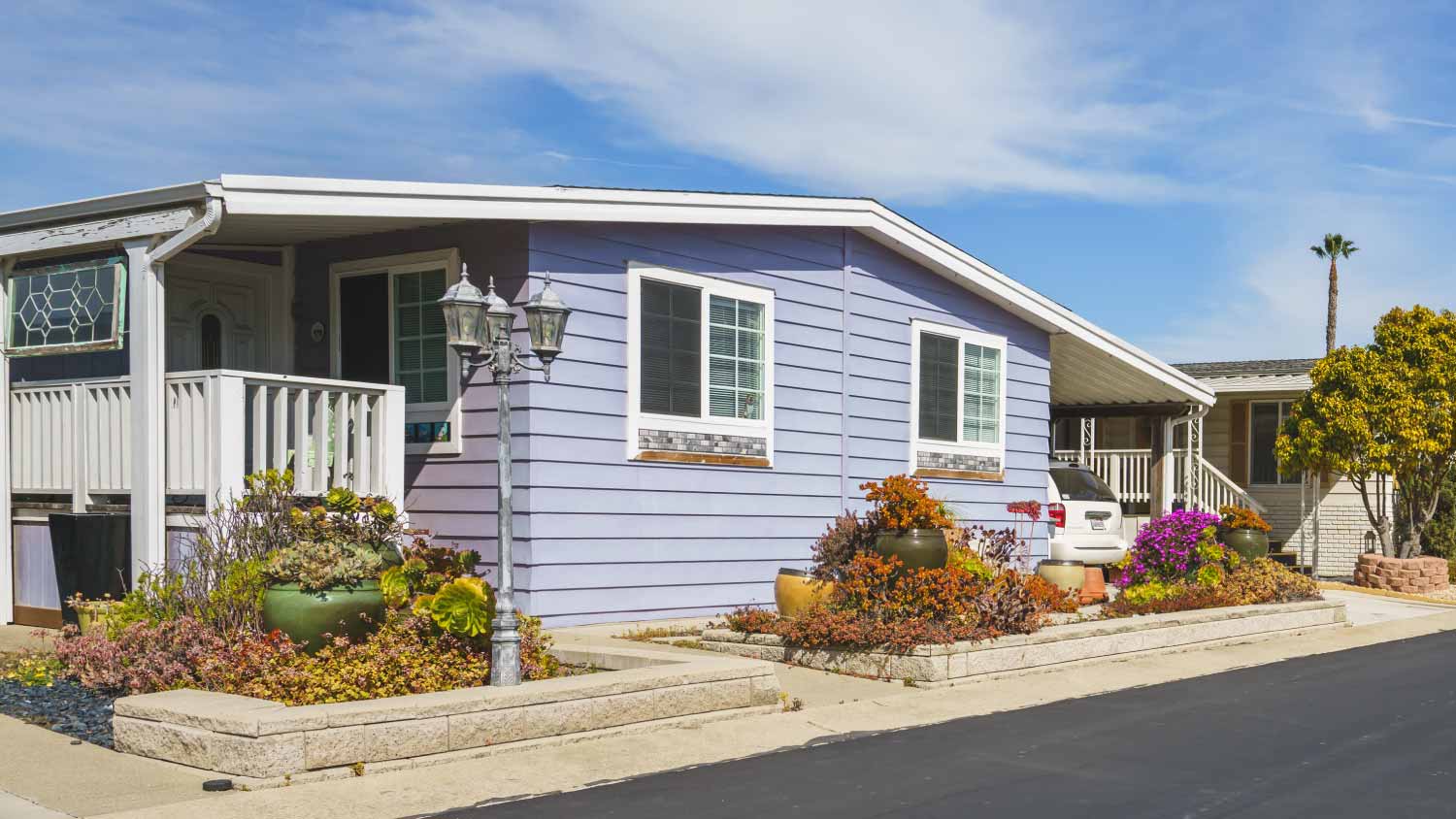Mobile Home Additions: Ideas and Issues to Consider
Boost your mobile home’s value, charm, and space with the right add-ons


A mobile home addition can expand living space and add resale value while making it look more like a traditional house. If you need help deciding where to begin, we’ve curated a list of ten great mobile home additions and add-ons with their pros and cons. Keep reading for inspiration and ideas that will help you unlock your mobile home’s hidden potential.
1. Get BBQing with a Deck or Patio

can be attached or detached and can vary in shape and size. A basic square or rectangle is the most budget-friendly approach, while a more creative and ornate design will add extra curb appeal.
Decks serve a similar purpose to patios but are elevated and are typically made of wood, vinyl, or composite. A deck can be freestanding or attached to the home. In the case of a mobile home, adding an attached deck requires an independent support structure so that it does not put added stress on the mobile home.
2. Stay Cool and Dry Under a Patio Cover
If you’re already enjoying a patio, why not cover it? Patio covers offer protection from the weather and let you use your patio for more months of the year.
Patio covers come in a range of materials and sizes to suit any budget or aesthetic. DIY kits are available, too. Insulated patio covers are more expensive, but they offer better weather protection and durability. Uninsulated covers are less durable, but they’re also less expensive.
3. Create a Designated Parking Area

A parking area or a driveway instantly adds value and curb appeal. Your parking area can be practical and bring personality to the home’s exterior, with options like pavers, concrete, and asphalt.
The cost to pave a driveway varies by material, shape, size, and site preparation, but it’s a relatively affordable upgrade that elevates the look and feel of a mobile home.
4. Expand the Kitchen
Kitchen upgrades provide one of the best returns on your investment. As long as you stay within your budget, the room renovation costs for kitchens are usually worth it.
A kitchen bump-out, which is a small addition to an existing room, can give you added cooking and entertaining space while making room for upgraded appliances. A local home addition pro with experience in mobile homes is a good place to start with this type of construction. Any room extension will require permits and the addition of an independent support structure.
5. Get Organized With Extra Storage

Adding storage to a mobile home can be as simple as custom shelving or as elaborate as a detached garage or shed. Before you commit to this project, consider what you need to store and how accessible you need the items to be. You may want to keep rain or cold weather gear close at hand, for example, while lesser-used gardening tools and equipment can go in a standalone shed.
6. Add a Mudroom for a Cleaner Home
A mudroom keeps water, dirt, and anything else you collect outside from getting into carpet and upholstery. It can also act as a storage space for outdoor clothing, shoes, toys, pet gear, bags, and tools—not to mention mail and packages.
Like other home additions, a mudroom that expands your home’s footprint will require an independent foundation to protect the structural integrity of the mobile home.
7. Let in the Light with Window Upgrades

Window upgrades come in many shapes and forms, like:
More energy-efficient window designs
Larger windows
New trim
These projects often increase a home’s resale value, and replacing or expanding your windows doesn’t require a foundation addition. But home renovations that widen openings, like windows and doors, often require permits, so check your local laws.
8. Drywall It for Greater Versatility
Many, though not all, mobile home walls are made of vinyl over gypsum (VOG) because it’s lightweight and easy to install. VOG is practical, but drywall increases your home’s value and opens the door to different designs and styles. Once installed, you can paint or texture the drywall to give your home a more custom look.
If you’ve got some strong DIY skills, you can add drywall yourself. Keep in mind that drywall is heavy and can easily get damaged during installation. Consequently, it’s a project for an advanced DIYer rather than a beginner.
9. Say Hello to New Fiber Cement Siding

Mobile homes typically have lightweight recycled vinyl siding that makes transporting the home easier. However, upgrading that siding can improve aesthetics, safety, and home value.
There are many options, but fiber cement is one of the most popular upgrades. This hardy material is fire-resistant, has excellent durability, and comes in a wide range of sizes, including laps, shakes, planks, panels, and shingles.
If you’re thinking of taking this one on yourself, consider that fiber cement is heavy and requires special cutting tools. Plus, you have to paint or stain it before or after installation.
10. Make Room For Guests
A guest room allows you to welcome more weekend visitors, accommodate a family member who will be moving in, or create a multi-use home office space.
Adding one usually costs less than expanding a kitchen or bathroom because there’s no plumbing involved, but it’s still a costly upgrade. Some modular designs may be compatible with an extension from the same manufacturer, offering a more convenient and cost-effective option.
Why Add Onto a Mobile Home?
There are several reasons you may want to add to a mobile home. For one, the additional space can help accommodate a growing family. Whether it's an extra bedroom, bathroom, or living space—adding onto a mobile home will make for a more comfortable experience for everyone.
For some, buying a larger mobile home may have been cost-prohibitive at the time of purchase. In many cases, a mobile homeowner opts to expand their original mobile home after saving for the project. For some people, it makes more sense to spend less money to expand a mobile home than to pay a lot more and buy a new large one.
Adding onto a mobile home also makes it more valuable should you decide to sell it down the road.
Mobile Home Addition Regulations
You should be aware of any local regulations before you add to a mobile home. Sometimes, mobile home additions need to be built as free-standing structures capable of supporting their own weight. Some areas also require that mobile homes not be placed on permanent foundations.
This may not always be the case, but it's important to check with your local municipality to ensure you're following any regulations when it comes to expanding your mobile home.
Frequently Asked Questions
Yes, you can add extensions to a mobile home. However, the process is a little different compared to adding on to a standard home. The extension must have an independent foundation or support structure to prevent the mobile home from shifting and weakening. You may be able to order a modular extension for a less expensive mobile home add-on.
Local laws determine whether or not you need a permit to remodel your mobile home. Some types of remodels, such as widening exterior windows and doors or adding a room, are more likely to need permits than a project like adding built-in shelves. Check with your local building department or consult an experienced contractor to determine the kinds of permits you need.
Yes, you can attach a deck to a mobile home, but it’s important that the work be done correctly to avoid the potential for major damage to your home. Many building codes require that any additions to mobile homes—including decks—be either freestanding or have their own support structures. Getting permits may require submitting the home's original floor plan, the proposed floor plan, framing details, and more.


- The All-In-One Mobile Home Inspection Checklist
- 5 Mobile Home Foundation Types You Need to Know
- 34 Modern Upgrades That Add Value to a Home
- How to Build a House: Your Complete Guide to the Home-Building Process
- All of the Home Trends We Expect to See Everywhere in 2022
- Which Home Projects To Put On Your To-Do List First After Moving
- 12 Tips to Make Your Home Look Expensive From Actual Pros
- What Permits Do Homeowners Need for Home Additions?
- How to Create a Versatile Kitchen Layout That’s Perfect for Entertaining Guests
- 5 Home Improvement Projects You Can Do for Under $1,000










